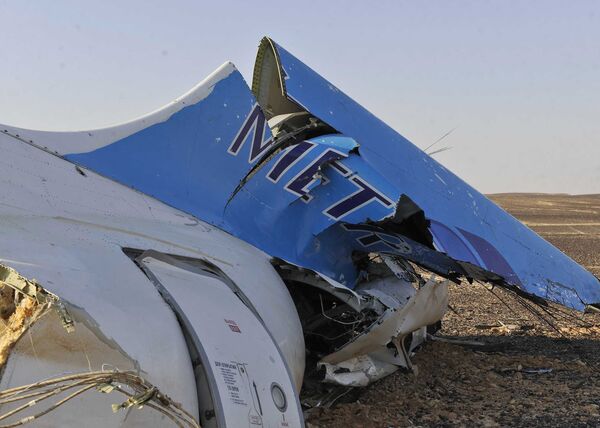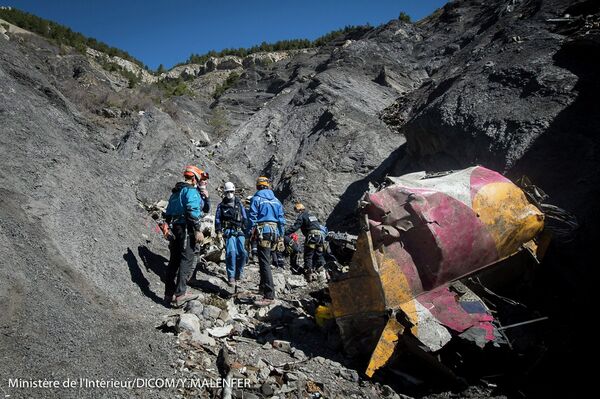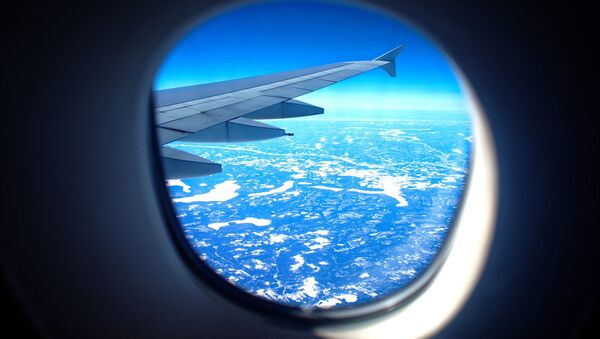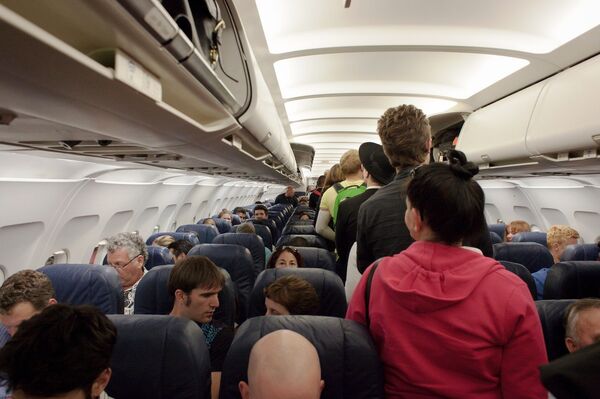The International Air Transport Association (IATA), in its latest report published Monday, noted a steep decline in plane accidents last year — reporting only 136 passenger deaths compared with 2014's 641.
1 accident for every 3.1 million flights in 2015. View full #safety performance report here: https://t.co/ksTcQr6vHC pic.twitter.com/UKOu1dKfQy
— IATA (@IATA) February 16, 2016
"In terms of the number of fatal accidents, it was an extraordinarily safe year," IATA's Director General and CEO Tony Tyler said in a statement.
"And the long-term trend data show us that flying is getting even safer."
There is an obvious catch, though. IATA's survey only takes into account accidents brought about by technical failures or other non-deliberate causes.
Accordingly, both the Germanwings crash — thought to have been caused by the copilot's (mass) murder-suicide, and the Russian passenger jet bombing over Sinai were regarded as "unlawful interference" and not included in the report.

"IATA officials produce this report only to monitor accidents and aircraft safety-related issues. Crashes causes by hijackings or bombs are not seen as relevant to safety statistics," Dr Anil Padhra, senior lecturer in Aviation Studies at Kingston University London told Sputnik.
"But as a passenger you have to consider other factors as well — such as the airport security. The aircraft can be safe, but other shortcomings can be fatal."
Dr Padhra explained that aircrafts and flying control technologies actually did improve over the last couple of years, allowing a gradual minimization of fatal mishaps in commercial aviation.

But he added that cases such as Germanwings pose a challenge to the industry.
"The Germanwings accident is a tricky one, since there isn't yet a reliable mechanism to scan pilots' mental fitness. But one could argue that the [aviation] industry as a whole should do more about that, that it should open a debate," Dr Padhra told Sputnik.
Aviation expert and Flightglobal's founder David Learmount wrote in a blog post that risks to passengers' safety are changing. They are less and less technical issues, and more and more due to foul play.
In a chat conversation, Learmount told Sputnik that he thinks IATA should revise its criteria when it comes to assessing aviation safety.
"[Technical] accidents are so rare, passengers have no reason to fear them. Fatal security events are also rare, but as a proportion of airline mishaps they are now significant," Learmount told Sputnik.



